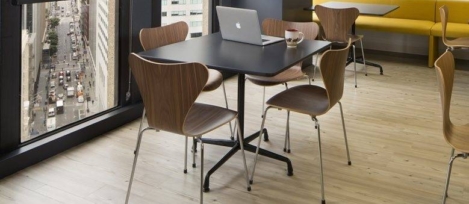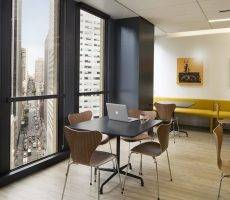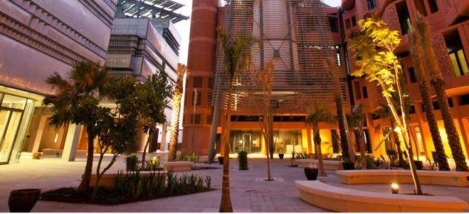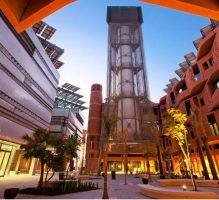September 25, 2016
Flexible productivity myth + Women’s wear + Millennial motivators 0
 In this week’s Newsletter; Colin Watson points out that we sometimes forget just how young the Internet is; Paul Carter ponders working off the radar and the rise of co-working hubs and agile working; Mark Eltringham argues we’ve known for some time what makes people happy and productive at work; and says flexible working has developed a reputation as something of a silver bullet. Women’s choice of office attire is subject to unfair criticism by bosses; contrary to popular belief Millennials want the same from the workplace as everyone else; and evidence that sensory inputs can significantly improve productivity and cognitive performance. A new report suggests how technology will impact on real estate; and reasons for the boom in co-working spaces in London are revealed. Download our new Briefing, produced in partnership with Boss Design on the link between culture and workplace strategy and design; visit our new events page, follow us on Twitter and join our LinkedIn Group to discuss these and other stories.
In this week’s Newsletter; Colin Watson points out that we sometimes forget just how young the Internet is; Paul Carter ponders working off the radar and the rise of co-working hubs and agile working; Mark Eltringham argues we’ve known for some time what makes people happy and productive at work; and says flexible working has developed a reputation as something of a silver bullet. Women’s choice of office attire is subject to unfair criticism by bosses; contrary to popular belief Millennials want the same from the workplace as everyone else; and evidence that sensory inputs can significantly improve productivity and cognitive performance. A new report suggests how technology will impact on real estate; and reasons for the boom in co-working spaces in London are revealed. Download our new Briefing, produced in partnership with Boss Design on the link between culture and workplace strategy and design; visit our new events page, follow us on Twitter and join our LinkedIn Group to discuss these and other stories.




































September 10, 2016
Home working myths + Millennial’s needs + Global sustainability 0
by Sara Bean • Comment, Facilities management, Flexible working, Newsletter, Property, Workplace, Workplace design